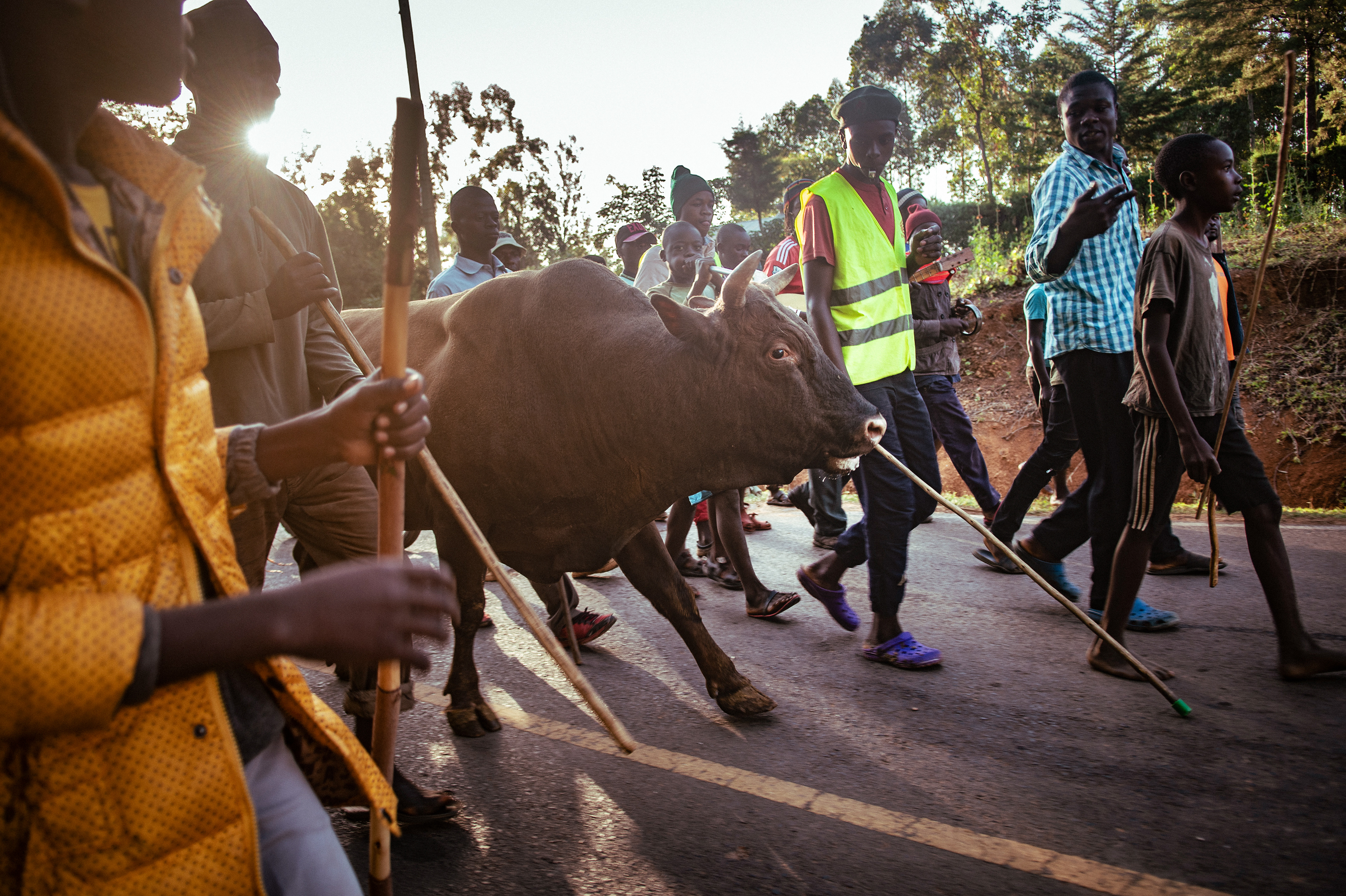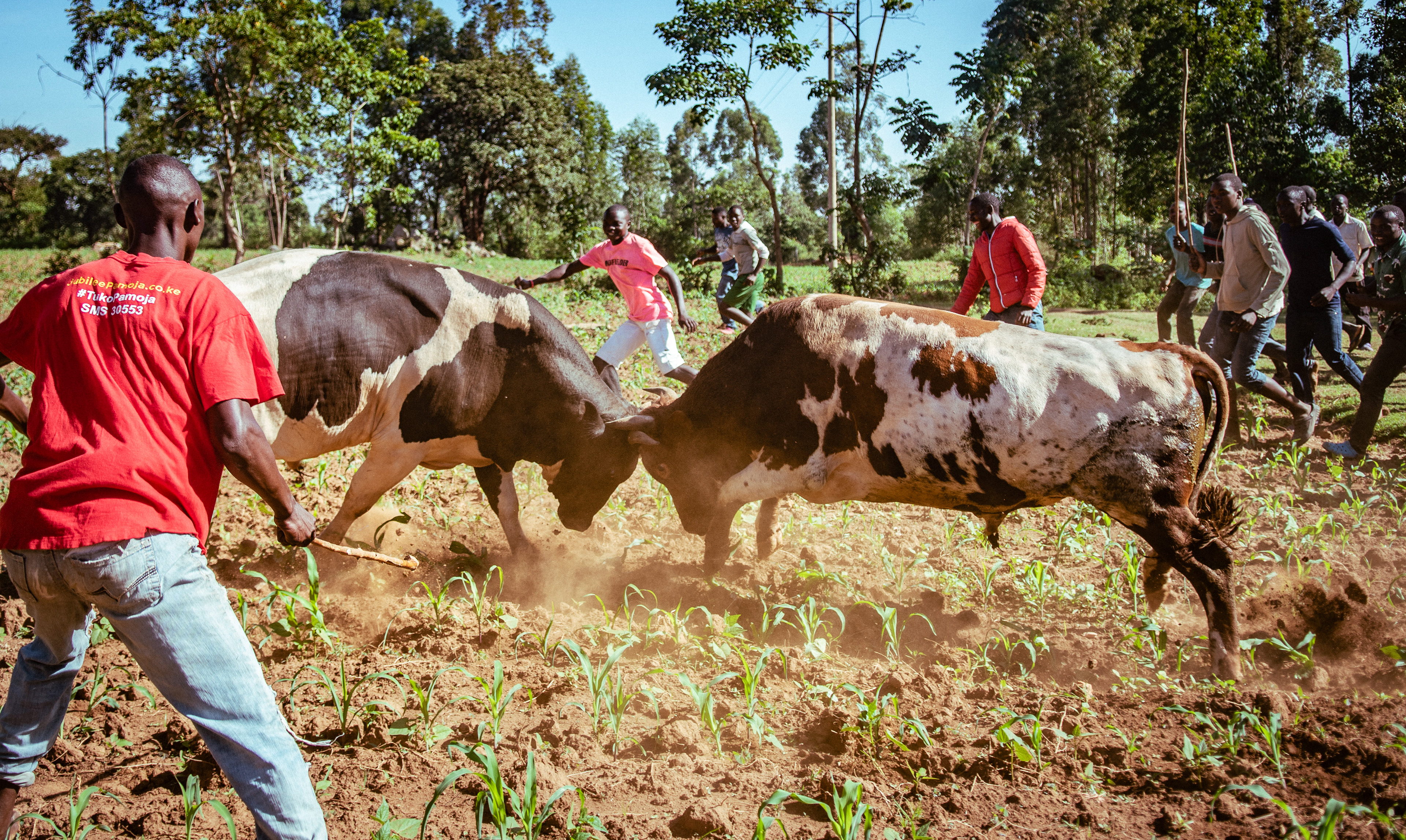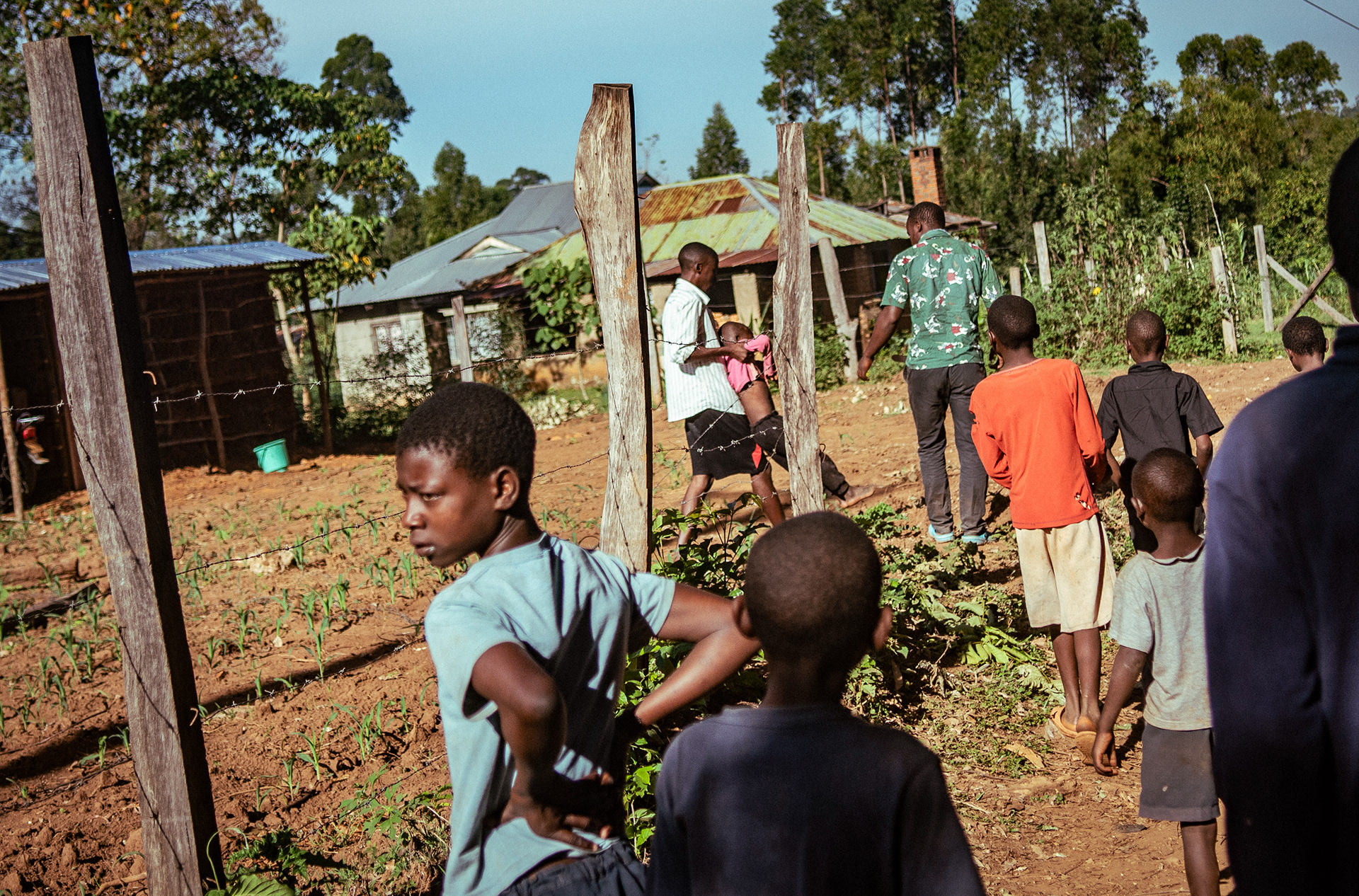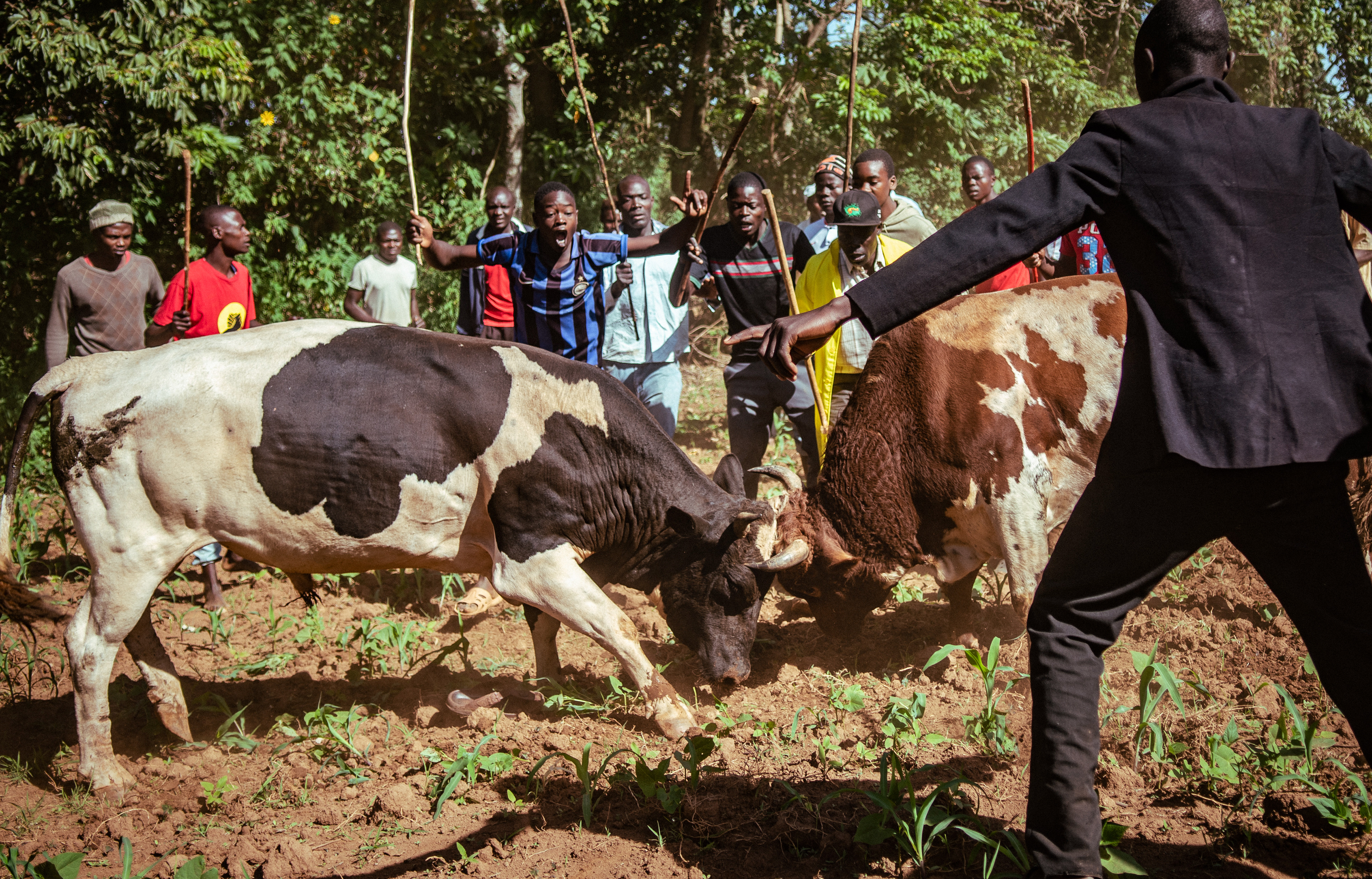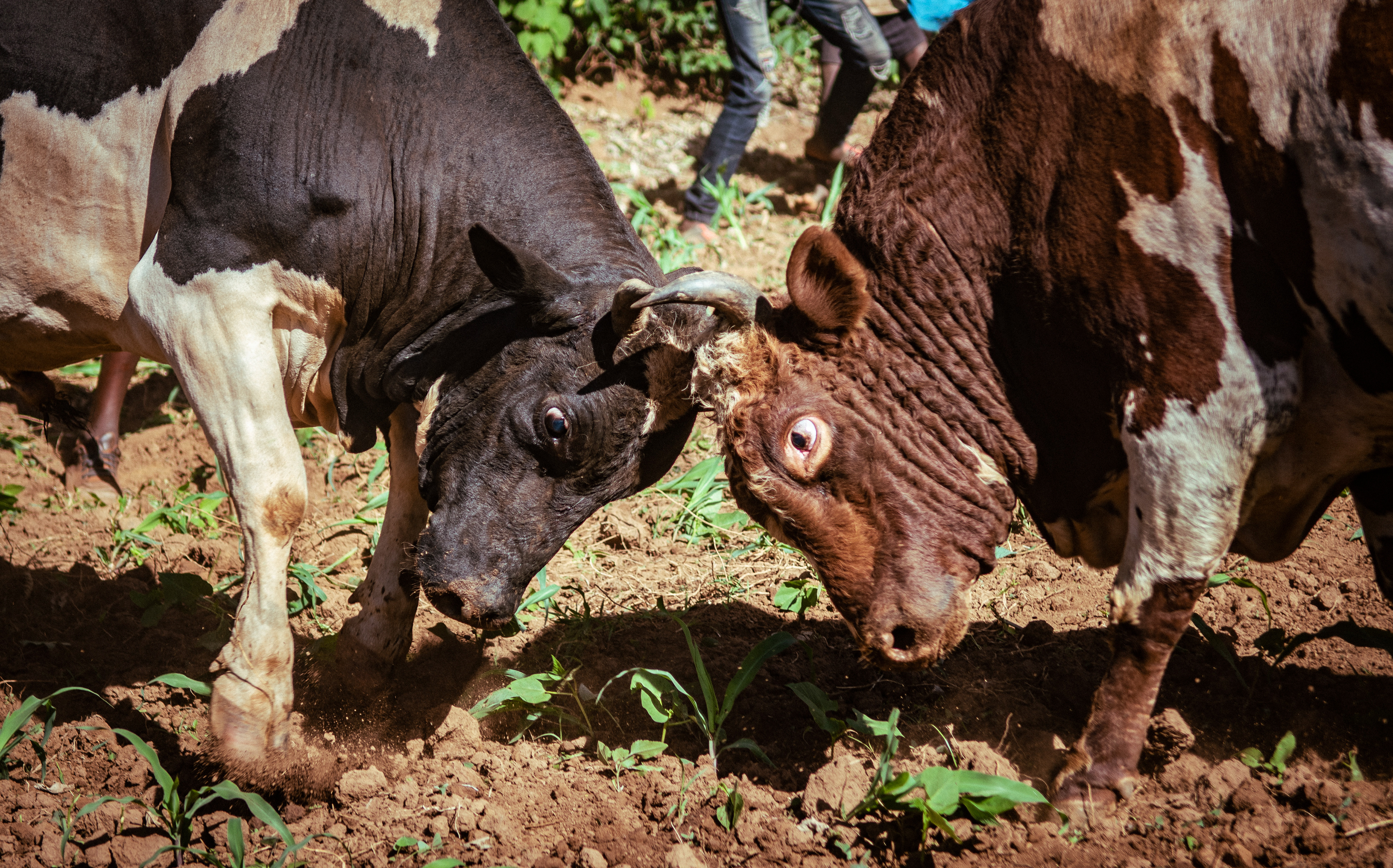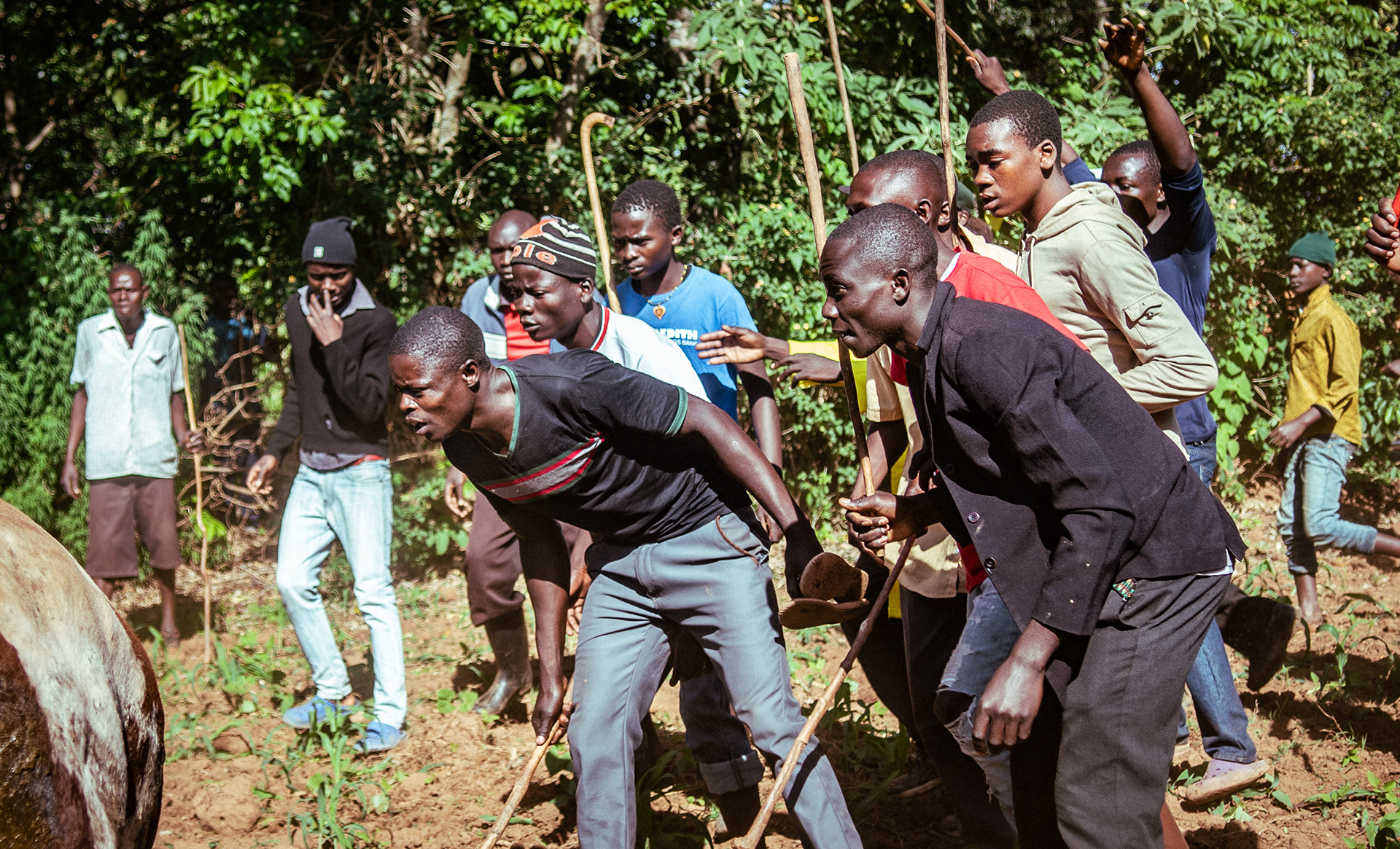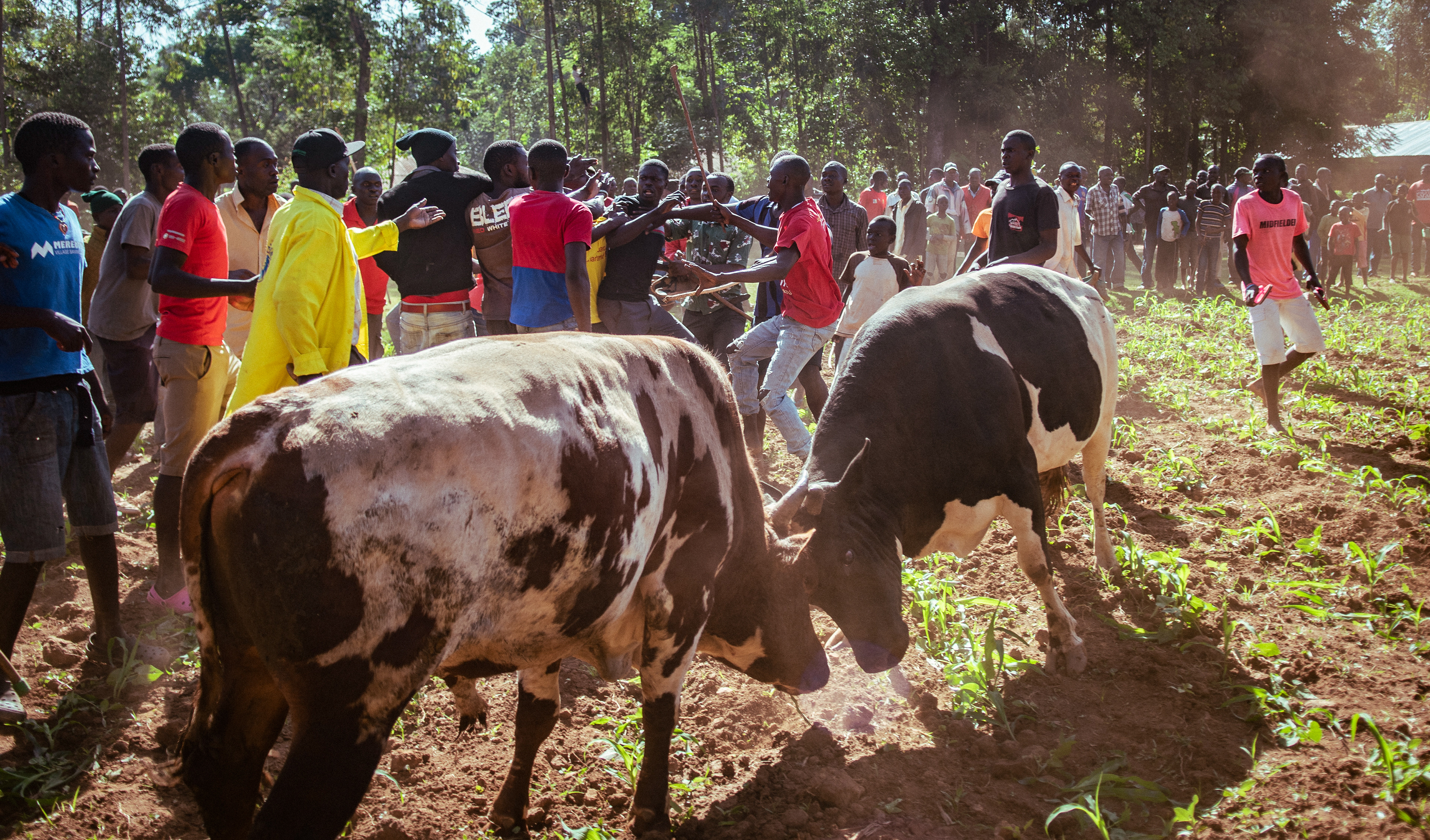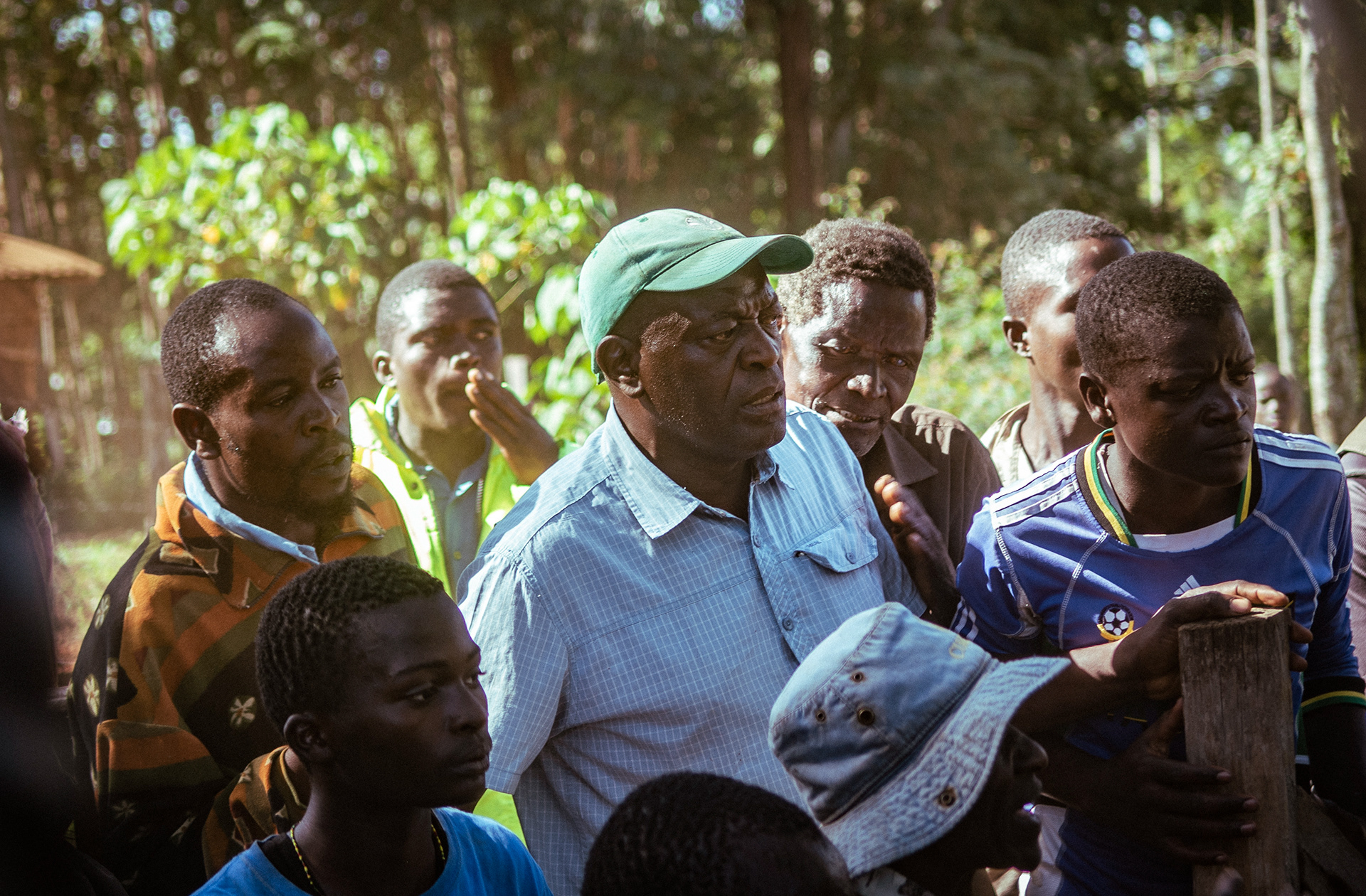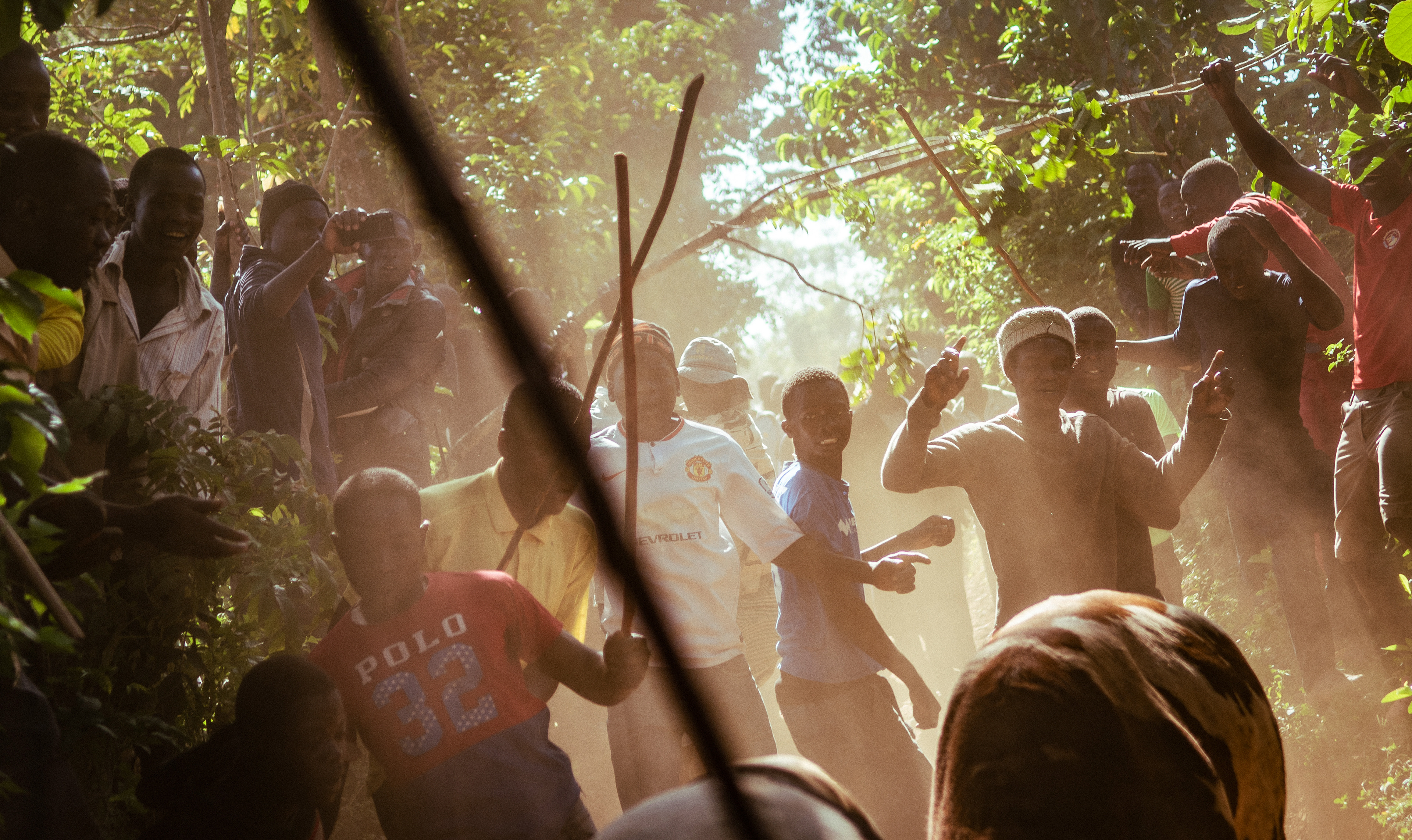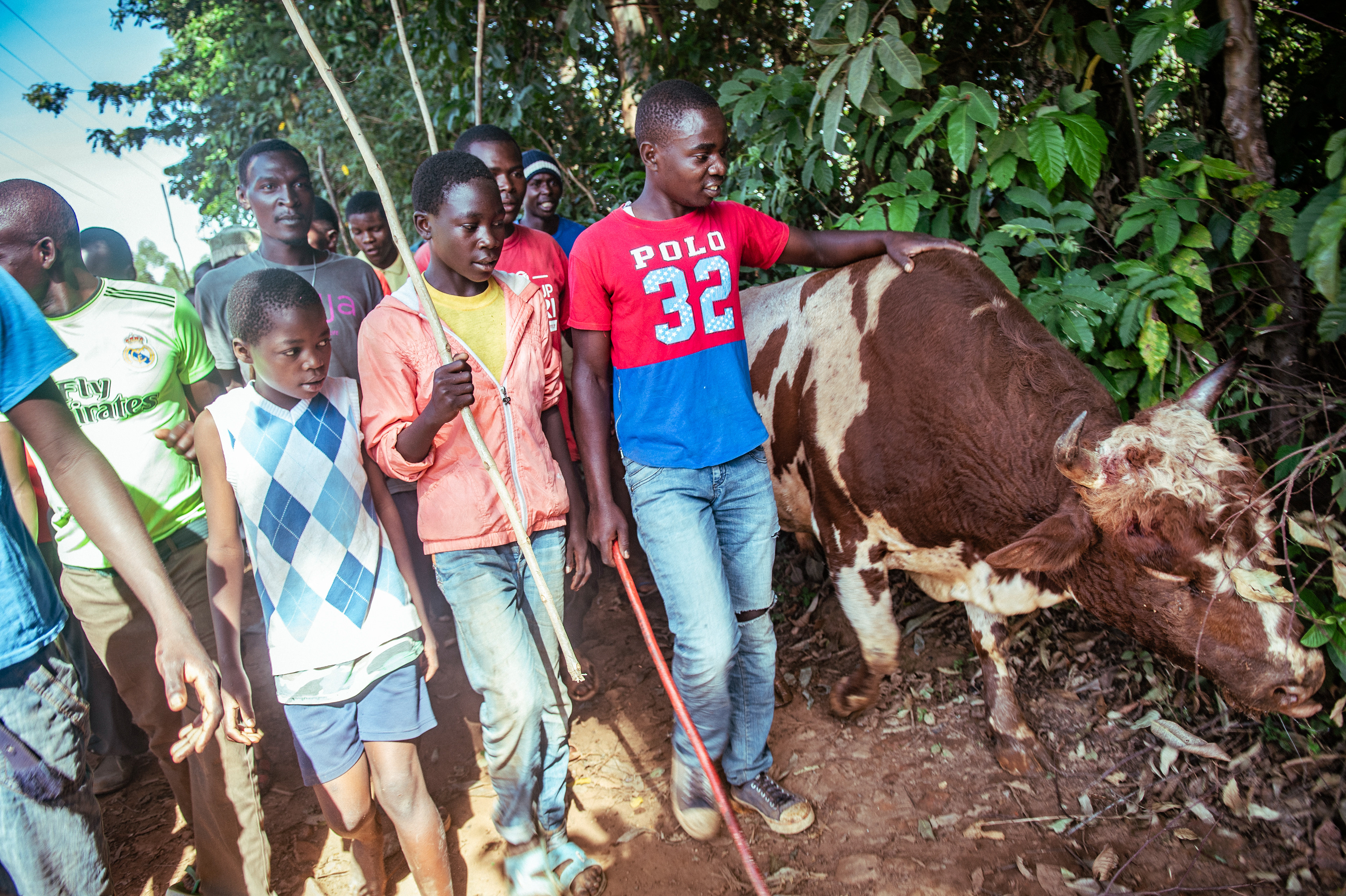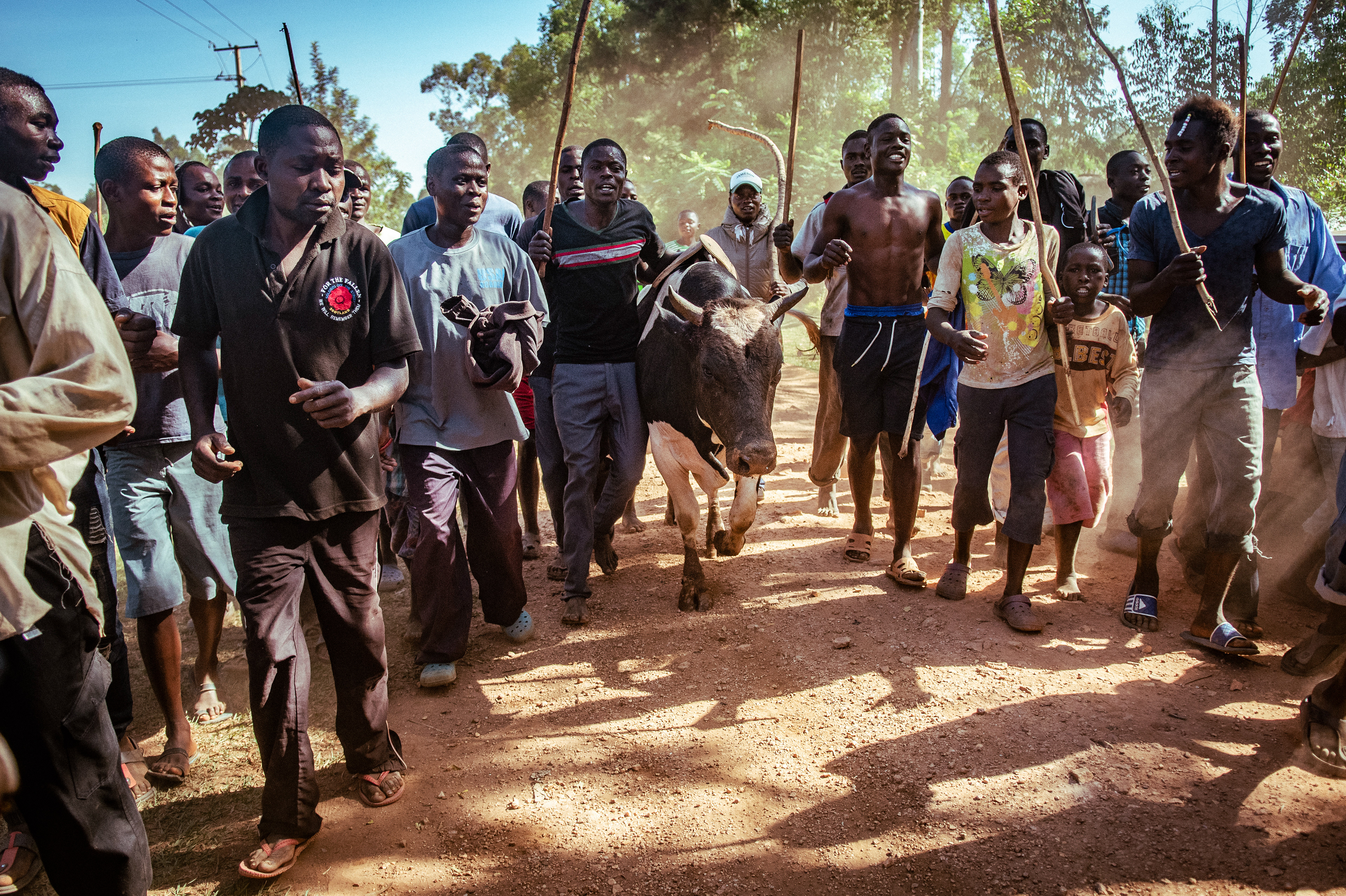
Among the Luhya tribe in western Kenya, a tradition of bull-fighting exists. Originally practised to mark important events such as funerals, the sport has evolved into a more competitive and at times profitable pursuit.

After sizing each other up for several minutes the bulls launch into each other and the fight is on. While they can be herded towards a certain area, the animals fight where they want to, which in this case happened to be a maize field.

Arguably the most dangerous part of the sport, especially in informal events such as this, is watching it. Here a girl is carried away after being knocked over by a bull that decided to flee instead of fight.

Kakamega bull-fighting is an up close and personal experience, with the crowd following the action and running occasionally to avoid getting hit.

Horns locked, Misango (left) and Tupa Tupa (right) battle for dominance. Gerald Ashiono, chairman of the local Bull Owners Welfare group, says that bull-fighting is an intangible part of the region's heritage, spanning generations: "My grandfather owned bulls, my father owned bulls, now I own a bull."

Participants and spectators circle the competitors and cheer on their preferred animal, creating an atmosphere more akin to a fight club. Despite objections from some animal rights activists, proponents of the sport say it is an important economic activity and part of the Luhya cultural heritage.

A fight breaks out between two men representing different bulls. With gambling on the outcome a major component of the sport, tensions can run high during fights.

According to Mr Ashiono this form of bull-fighting is more humane than the Spanish variety: "The bull has a choice, if it doesn't want to fight that day you can't force it."

The crowd cheers as the bulls move from the maize field towards another farm.

Defeated, Tupa Tupa and his owner return home. While unsuccessful bulls may eventually be sold for meat, a key difference with Kenyan bull-fighting is that no bulls are killed in the process.

Misango, the victor after forcing Tupa Tupa to run away, is escorted back to the owner's village by a crowd of jubilant supporters.
